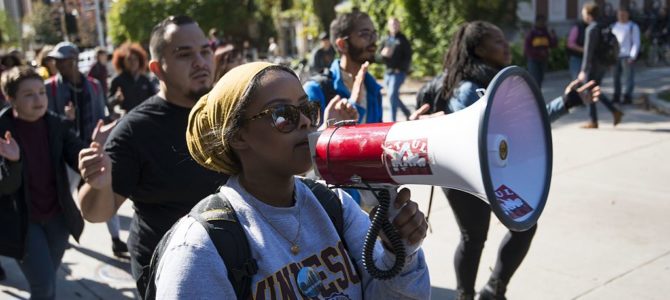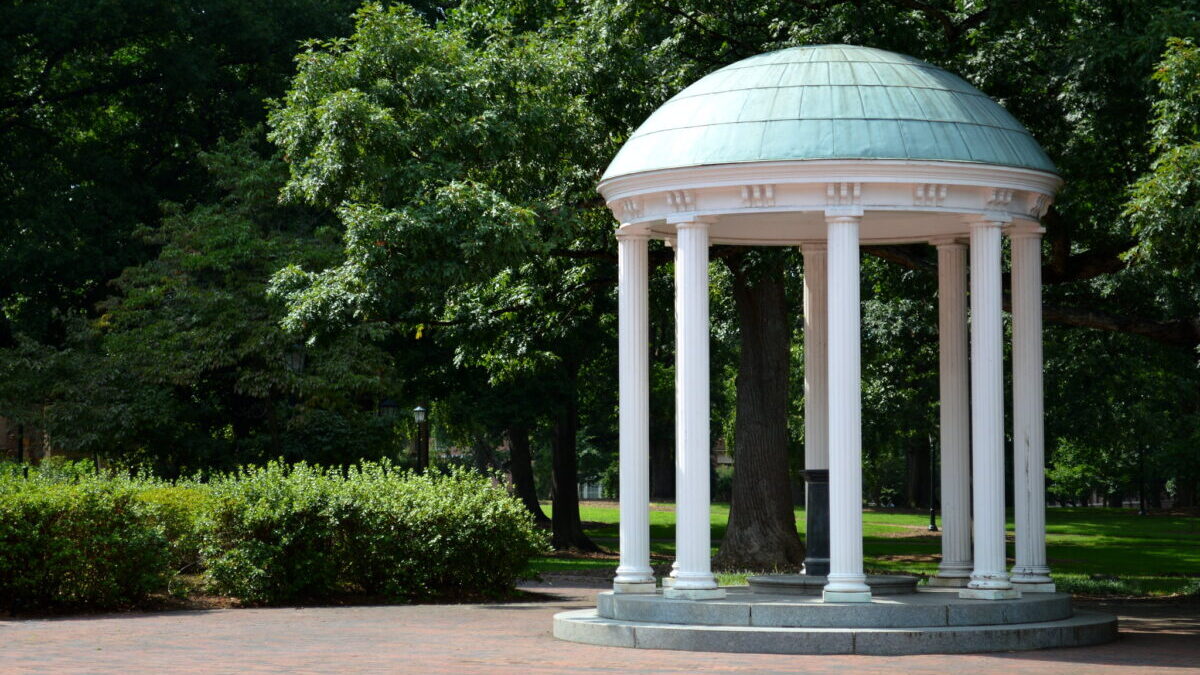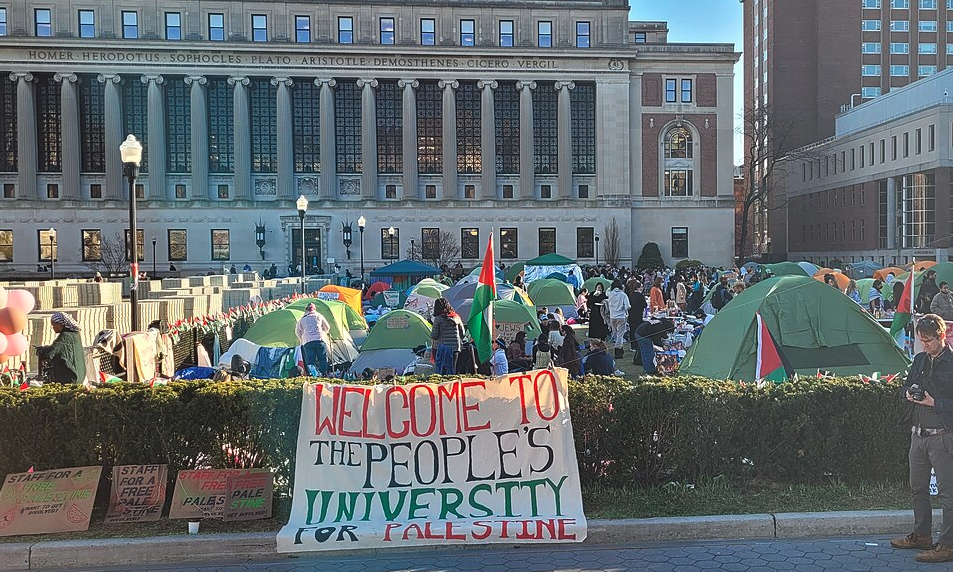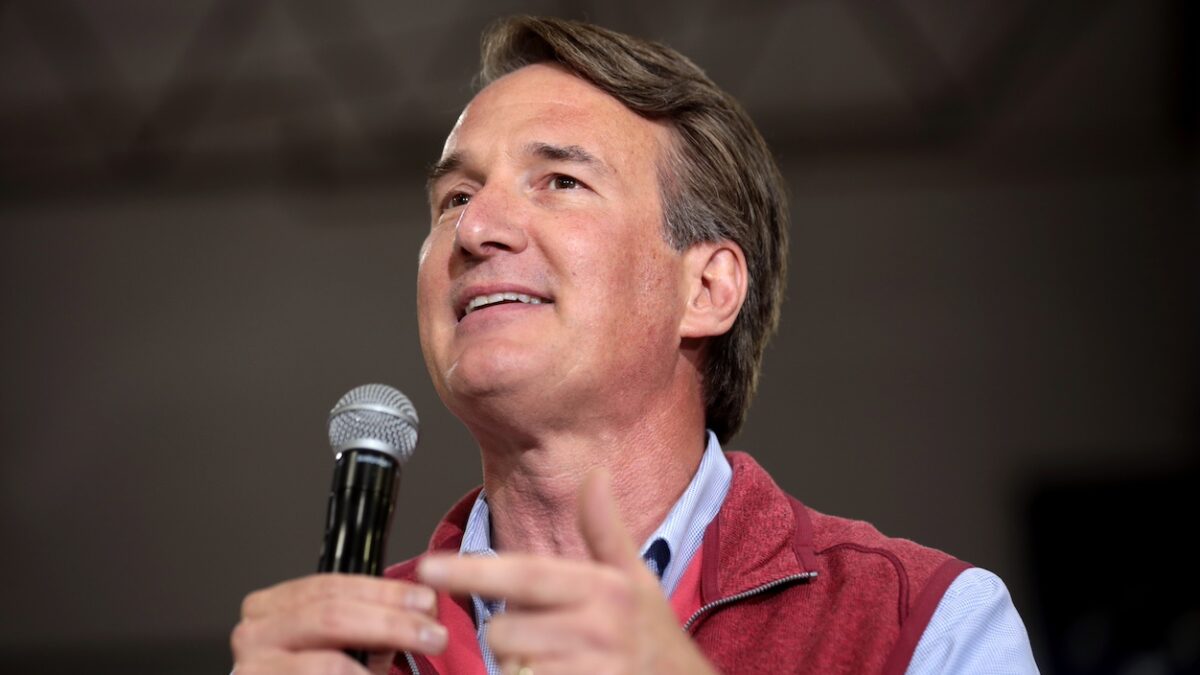
As far back as 1965, George Harrison urged his listeners, “Think for yourself.” That was good, countercultural advice at the time, and it seems it still is. But the counterculture has since shifted right, especially on college campuses.
In the wake of the American Civil Liberties Union’s disappointing decision to embrace free speech relativism, I found myself in a room filled with free speech champions late last week. The Network of Enlightened Women, a national book club for conservative college women and recent graduates, had gathered in our nation’s capital for their annual conference.
Attendees heard about a broad array of issues, including: women’s rights overseas, human trafficking, paid family leave, where feminism went wrong, and #adulting. However, the gathering’s single most important message was on the importance of free speech, including a defense of independent thought and respectful dialogue across political divides.

The Atlantic’s Caitlin Flanagan — who is even more engaging in person than she is on the page — crystallized these issues in her remarks to the group. Describing the birth of campus free speech at Berkeley, where liberal students protested for the right to speak about the Civil Rights movement in 1964, Flanagan recalled this as a brave and noble fight that changed the American college experience. It was that full-throated defense of free speech that helped draw Flanagan to the political left as a young person.
Five decades later, however, the world is vastly different. Speaking as the mother of twin sons who had recently visited numerous college campuses, Flanagan noted the irony of countless undergraduate campus tour guides explaining their campus was special because professors teach students how to think, rather than what to think. Flanagan added, “I held my tongue. But if it had been an administrator leading the tour, I’d say, you’re either lying or you’ve never walked around your campus.”
Flanagan continued, “I see the activism in terms of what’s being broadly advertised; there’s an indoctrination going on. The ethos or tone is, it’d be in your best interests to come out of here with a certain set of opinions. Instead of teaching you how to choose among them, we’ll just tell you what they are. … A lot of these ideas are damaging to women and increasingly to men.”
In speaking to attendees, I met multiple women who had experienced such one-sided teaching on campuses across the country. Several told stories of watching their grades improve by parroting liberal pieties in final exam essays, rather than sharing their own beliefs, because such “wrong” answers lost points. Of course, being called out as “wrong” in front of a whole class is worse, and when Flanagan took questions, one student described being put on the spot by a professor who dismissed her as racist, simply because she is conservative.

This reality contrasted sharply with Flanagan’s own Berkeley upbringing. Her professor father, “who was to the left of Karl Marx,” regularly responded to her liberal rants by asking her to offer the best arguments for the other side. Some women described having liberal professors who were similarly intellectually honest and supported their thinking differently, but all emphasized that such professors were a rarity.
Professors drew criticism, especially given their leverage over students’ grades. However, my interviewees unanimously agreed that it’s their Gen Z classmates who truly make campus life harder.
While upperclassmen and recent graduates reported that it’s never been easy to be a campus conservative, only one student thought things had not noticeably deteriorated since Trump won the presidency. A Syracuse Law student recounted a professor’s turning class into a group therapy session the day after the 2016 election, so students could vent. An undergraduate from Temple University recalled fellow students literally rioting in Philadelphia that same day.
Since then, civility has collapsed on many campuses, while politics has infected everything. At George Washington University, there are apparently women who have stopped speaking to their own sorority sisters over politics. And one need not have voted for or otherwise supported Trump. Every woman I spoke to agreed; simply being a known campus conservative is enough to get you labeled “anti-woman” or mistreated by some fellow students.

Given that college is supposed to be a time for personal and intellectual exploration (and fun!), this all sounds miserable. Yet, as much as campuses are like islands, they aren’t hermetically sealed off from the larger culture. Emily Ekins, research fellow and director of polling at the Cato Institute, presented findings from a recent poll that underscored why it is so difficult for undergraduates to have good faith debates about charged questions of public policy.
Consider, 58 percent of Americans say they feel they can’t openly express their opinions, lest they offend others. That includes 46 percent of Democrats, 58 percent of Independents, and 73 percent of Republicans. Among campus conservatives, that last number is presumably much higher, as multiple NeW attendees described waiting to share their political affiliation and views until after they were sure new friends knew them as people.
It’s hard to share unorthodox views on campus, including something as seemingly neutral as being pro-First Amendment. Now, 53 percent of Democrats and 31 percent of Republicans believe that if you support someone else’s right to say racist things it is as bad as holding those racist views yourself. Sixty-six percent of Democrats and 41 percent of Republicans even told pollsters that hate speech is an act of violence.
Perhaps worst of all, 63 percent of Democrats and 47 percent of Republicans believe that people “usually have bad intentions when they express offensive opinions.” Given that liberals and conservatives have different ideas about what’s offensive and that simply identifying as conservative is offensive on most college campuses, campus conservatives’ experiences make sense.
But that doesn’t make any of it healthy. Responsible professors and administrators should emphasize how much their students have in common and encourage friendships across partisan divides. A worthwhile education should also force all students to grapple with varied opinions. Otherwise, why bother with college?

In the end, that’s the value of a group like NeW. Different views were voiced at the conference, and everyone listened respectfully. There was no personal nastiness, and numerous attendees commented about how refreshing that was. Or in the words of one recent Cornell graduate, “NeW offers a safe place without being a safe space.”
For the sake of current students and our society’s future, we could use more of that.









